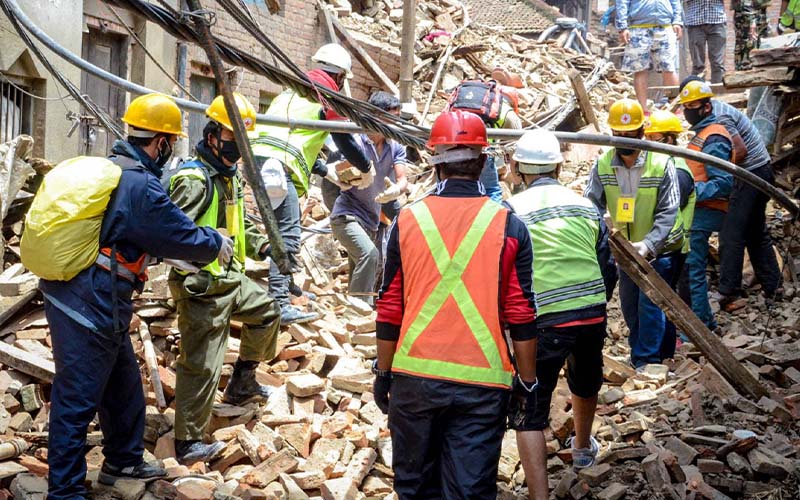Rehabilitation plays a crucial role in natural disasters owing to the significant upsurge of survivors with complex and long-term disabling injuries. Rehabilitation professionals can minimize mortality, decrease disability, and improve clinical outcomes and participation. In disaster-prone areas, skilled rehabilitation workforce and services are either limited and/or comprehensive rehabilitation-inclusive disaster management plans are yet to be developed.
UB Trust is working on increasing frequency of natural disasters, as there has been greater focus recently on the importance and role of rehabilitation services in disaster management. In past disasters, rehabilitative needs were often neglected, with emphasis on acute response plans focused on saving lives and treating acute injuries. There was a lack of, or inadequate, rehabilitation-inclusive disaster response plans and rehabilitation services in many disaster-prone developing countries. Emergency Medical Team (EMT) initiative recognizes rehabilitation as an integral part of medical response and patient-centred care in disaster settings. Current developments under this initiative include: the development of minimum standards for rehabilitation in emergencies to allow rapid, professional, coordinated medical response by both national and international EMTs. These guidelines ensure that EMTs deliver effective and coordinated patient care during disasters and continuum of care beyond their departure. The aim is to strengthen national capacity, foster an environment of self-empowerment of EMTs and local health services, and work in rehabilitation within defined coordination mechanisms in disaster-affected areas.

